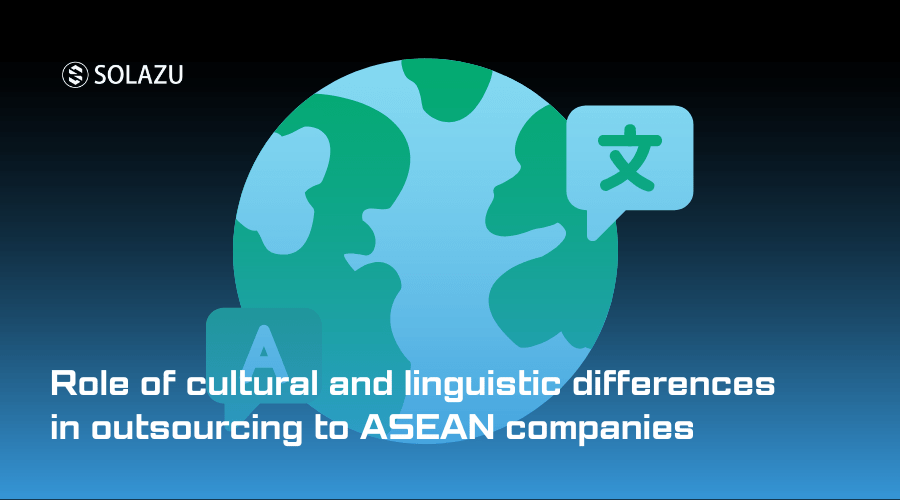Outsourcing software development to ASEAN companies has become increasingly popular in recent years due to the region’s skilled workforce, cost-effectiveness, and favorable business climate. However, one of the biggest challenges companies face when outsourcing to ASEAN is managing cultural and linguistic differences. In this article, we will discuss the role of these differences and provide insights on how to overcome them.
Cultural and Linguistic Differences in ASEAN
The ASEAN region is made up of diverse cultures and languages, with each country having its unique customs, beliefs, and social norms. For example, Thailand is known for its strong hierarchical structure, while Indonesia has a more collaborative working style. Additionally, language differences can also be a significant barrier to communication, as each country has its official language, and some may speak multiple dialects.
Cultural differences can impact the outsourcing process in several ways. For instance, differing perceptions of time and punctuality can cause misunderstandings and delays. In some cultures, such as in Thailand and Vietnam, meetings may start later than scheduled, and participants may not be as concerned about punctuality. On the other hand, in Singapore and Malaysia, punctuality is highly valued, and meetings are expected to start promptly.
Another factor is communication style. In some cultures, such as in Japan and South Korea, direct communication is avoided to preserve social harmony, while in other cultures, such as in the Philippines and Vietnam, direct communication is preferred. These differences can lead to misunderstandings and misinterpretations in communication, particularly in written messages.
Managing Cultural and Linguistic Differences in Outsourcing
To overcome these challenges, companies must understand and adapt to the cultural and linguistic differences of their outsourcing partners. Here are some strategies that can help:
- Build strong relationships: Building relationships based on mutual respect and trust is crucial to the success of outsourcing partnerships. By fostering open communication and taking the time to understand each other’s cultures, companies can build strong relationships that are less likely to be affected by cultural and linguistic barriers.
- Invest in cross-cultural training: Providing cross-cultural training to both outsourcing teams and in-house staff can help improve cultural awareness and communication skills. This training can cover topics such as cultural values, communication styles, and working norms.
- Use technology to overcome language barriers: Language translation tools such as Google Translate and Microsoft Translator can help bridge the language gap in written communication. Additionally, video conferencing tools such as Zoom and Skype can be used to facilitate real-time communication, allowing for immediate feedback and clarification.
- Adapt to local working practices: Companies should be willing to adapt their working practices to align with local customs and norms. For instance, adjusting meeting times to accommodate the preferred working hours of outsourcing partners can demonstrate a willingness to work collaboratively and build stronger partnerships.
- Hire bilingual staff: Hiring bilingual staff who speak the local language can help facilitate communication and build trust. These staff members can act as intermediaries between the in-house team and the outsourcing team, ensuring that messages are communicated accurately and avoiding misunderstandings.
Conclusion
Cultural and linguistic differences can pose significant challenges when outsourcing to ASEAN companies. However, with careful planning and a willingness to adapt, companies can overcome these barriers and build successful outsourcing partnerships. By investing in cross-cultural training, leveraging technology, and building strong relationships, companies can effectively manage offshore development teams in ASEAN and achieve their business objectives.
